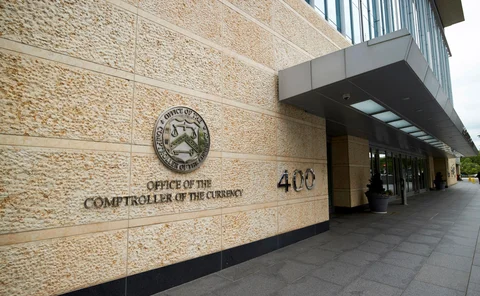
Kris Devasabai
Editor-in-chief, Risk.net
Kris Devasabai is the New York-based editor-in chief of Risk.net. Previously, he was bureau chief and US editor of Risk magazine. He manages the editorial team. Prior to joining Risk, Kris covered hedge funds, asset management, cross-border investing and law for several publications.
Kris holds a bachelor’s degree in law and government from the University of Manchester, and he completed his legal training at the Inns of Court School of Law in London. He was called to the bar of England and Wales in 2003.
Follow Kris
Articles by Kris Devasabai
DTCC’s plan to unlock billions in margin and capital savings
T+1 settlement has already cut margin; now firm is working on OCC tie-up, among 10 efficiency projects
Genius Act piles pressure on shrinking OCC, says Hsu
Risk Live North America: former agency head fears stablecoin vetting could “crowd out” other duties
Was a big US bank close to collapse in 2023?
PNC’s Bill Demchak says it was. And the data suggests he was talking about BofA
First Citizens used AI to retain SVB customers
Retention effort involved using AI to monitor customer behaviour and sentiment – including profanities
Deutsche’s Americas CRO on risk-taking in choppy markets
Risk Live Boston: Risk managers must stay alive to sudden market moves, but volatility can also bring opportunity, says Jonathan Hummel
AI ‘lab’ or no, banks triangulate towards a common approach
Survey shows split between firms with and without centralised R&D. In practice, many pursue hybrid path
Everything, everywhere: 15 AI use cases in play, all at once
Research is top AI use case, best execution bottom; no use is universal, and none shunned, says survey
Researchers, quants, strats – AI is coming for you
Survey IDs roles to be most impacted by front-office AI, but experts say many will change, not disappear
House of cards? The $3 trillion (non-systemic) real estate risk
Regional banks share the bulk of US commercial real estate exposure, but the sector’s downturn doesn’t faze them
Attention shifts to US, UK after European Union postpones FRTB
Risk Live: Global timeline still unclear, with banks hoping lawmakers will use delay to soften rules
Why ‘Derivatives’ became ‘Markets’
The derivatives markets have changed drastically over the past decade. So has Risk.net’s coverage
Review of 2023: a hard road to a soft landing
Banks and regulators were caught in the crosswinds of the fight against inflation
After a hack, loose lips won’t sink chips
Ion Group is the latest ransomware victim to stay mum about how it was compromised. No-one benefits from this code of silence
Revival of off-balance-sheet financing merits close scrutiny
Banks need more diverse funding sources, but new structures must be vetted carefully
Only regulators can clear up Credit Suisse’s Archegos mess
Shareholders were right to keep officers and directors on the hook until all the facts are known
Private equity’s insurance innovation needs a risk check
Regulators need to look closer at private equity’s rush to reinsure pension assets in Bermuda















